

Do You Need to Be Vaccinated to Cruise? It Depends on the Ship and Destination
While most cruise lines have scrapped covid vaccine and testing requirements, some companies and international cruise ports still have vaccination and testing rules in place..
- Copy Link copied

If you’re planning on sailing with Viking anytime soon, you’d better track down that COVID-19 vaccine certificate.
Courtesy of Viking
When cruising restarted in spring 2021, after a nearly 15-month pandemic-spurred shutdown imposed by the U.S. Centers for Disease Control and Prevention (CDC), cruisers faced a barrage of rules, including strict requirements for COVID-19 vaccinations and precruise COVID-19 testing. Later, the rules started to go by the wayside, and it was hard to keep track of who was requiring what. Not anymore.
Most cruise lines have now dropped or are soon dropping rules for both vaccinations and precruise testing, with at least one notable exception. Viking —on its river, ocean, and expedition ships—still requires everyone on board be fully vaccinated .
Another line that was still requiring COVID vaccinations, small-ship line Windstar Cruises, will be scrapping its vaccine mandate as of June 1, 2023. “We’ve invested in and improved our health and safety processes, including upgrading the HVAC systems on all of our ships, which has led to a cleaner and safer environment on board,” says Windstar president Christopher Prelog. “When combined with the widespread availability of vaccines and medical treatments, the risk factors are considerably lower now, giving us the confidence to lift the requirement.”
Are COVID vaccinations and testing still required for cruises?
Most cruise lines have dropped both their vaccine and testing requirements. Those that have lingered into 2023—mostly lines operating smaller ships—have been quietly scaling back their requirements.
The result: While there was a time after cruising restarted that you could be assured that your fellow passengers, at least those age 12 and up, were both fully vaccinated and tested for COVID-19 before getting on the ship, that is not the case anymore.
That said, specific countries have their own requirements, and several countries still require that cruise ship passengers are vaccinated and/or tested before arrival. If you are doing an itinerary outside of the Caribbean or Europe (where most vaccine and testing requirements have been dropped)—including to select countries in Central and South America or to Australia—you still have to read your cruise line’s precruise health and safety information carefully to make sure you comply with the latest requirements.
Contact your cruise line or check the U.S. State Department’s travel advisories for the latest.
What to know before you cruise
Vaccine and pretrip testing requirements can be confusing, especially if you are cruising internationally. Cruise lines have their own rules; countries have their own rules.
Before your trip, you will need to review your cruise line’s health and safety protocols. If a precruise test is required by a certain country, you will find that noted. In this case, you may be required to arrive at your ship with a negative COVID-19 test result in hand or not. (If testing is required, it can typically be either a PCR test or tele-health-monitored antigen test , paid for by the passenger. The cruise line may also require a test at the pier, paid for by the cruise line.)
If being fully vaccinated is required, that means having received the original series of vaccines at least 14 days prior to your cruise, or the original series plus a booster shot or shots.
As was the case even before the pandemic, you will be asked at embarkation to fill out a questionnaire inquiring about your current health status and whether you currently have any symptoms of illness.
You are free to pack and wear masks on your cruise. Most cruise lines suggest you do wear masks in crowded indoor situations—but it’s not enforced.
A quick cruise line guide to COVID requirements
Here’s a rundown of the basic rules for some leading cruise lines. Note: There may be additional requirements if you are traveling internationally. Be sure to review the latest requirements prior to boarding.
American Queen Voyages
On American Queen Voyages’ river, ocean, Great Lakes, and expedition ships, there are no longer any precruise testing or vaccinations required. Face coverings are optional, though masks may be required of any passengers showing symptoms.
Precruise testing is no longer required for vaccinated guests sailing with Azamara , except in ports where testing is required. No vaccination is necessary for cruises departing from or returning to the United States or Europe. In Australia, all guests 12 years and older must be fully vaccinated at least 14 days before sailing with all required COVID-19 vaccine doses (including a booster shot). Children under 12 years old are not required to be vaccinated.
Celebrity Cruises
No vaccination or testing is required on the majority of Celebrity Cruises sailings. Destinations with stricter requirements include: the Galápagos, Australia and New Zealand, transatlantic crossings, and select Central and South America itineraries. Unvaccinated guests need to be tested in Brazil, Chile, and Colombia.
As of April 23, 2023, on the Queen Mary 2 and Queen Victoria , and as of June 8, 2023, on the Queen Elizabeth , vaccinations and testing will no longer be required by Cunard (until then, testing and vaccination requirements apply).
Disney Cruise Line
For sailings embarking from the United States, which are the bulk of Disney Cruise Line’s sailings, no vaccination or testing is required. Disney recommends all guests be vaccinated before sailing and take a test for COVID-19 two days prior to their cruise. There are additional requirements on repositioning cruises and in Australia, so it is important to check the line’s website before your cruise.
Holland America Line
There are no precruise testing or vaccination requirements on most Holland America Line itineraries. There are requirements on select voyages (you can look up a specific voyage’s requirements on the line’s website).
Lindblad Expeditions
For voyages embarking on or after May 11, 2023, Lindblad Expeditions will no longer require guests to be fully vaccinated, although the line recommends guests be fully vaccinated (for cruises prior to that time, all passengers age five and up must be vaccinated). Lindblad recommends, but does not require, passengers take a predeparture COVID-19 test within five days of the start of their expedition.
Oceania Cruises
Vaccine requirements are purely dependent on the destinations being visited on each Oceania cruise. Passengers are advised to be up to date on the latest regulations for all destinations on their cruise itinerary.
Paul Gauguin Cruises
Effective April 2023, Paul Gauguin Cruises no longer requires that passengers are vaccinated or tested for COVID prior to embarkation, but it continues to encourage vaccination. “Paul Gauguin Cruises’ officers, staff and crew will remain fully vaccinated,” the line states. Travelers will need to present a health declaration form at embarkation.
Regent Seven Seas Cruises
Vaccines and precruise testing are generally not required to sail with Regent Seven Seas Cruises . There are some requirements in place based on local health regulations in a specific country a ship is visiting. Regent notifies guests approximately 30 days prior to sailing of any country-specific protocols.
Royal Caribbean
No vaccine or precruise testing is required on the majority of Royal Caribbean itineraries, with a few exceptions: Cruises from Australia, transpacific and transatlantic sailings, and cruises from Hawai‘i to Vancouver.
No vaccine or testing required except on certain Seabourn itineraries where a country may have specific requirements.
No vaccination is required for Silversea passengers except as designated by the destination. Precruise testing is not required except when specified by a destination.
Viking Cruises
All passengers and crew are required to be vaccinated on Viking’s river, ocean, and expedition ships—without exception. Viking strongly recommends passengers receive a booster dose before departing. Viking recommends but does not require a predeparture COVID-19 test (except if required by a destination).
Virgin Voyages
Virgin Voyages has no precruise testing or vaccination requirements. Masks may be required at select times.
Windstar Cruises
Beginning June 1, 2023, Windstar will no longer require guests to be vaccinated. Crew will continue to be vaccinated. Masks are optional, with the line highly recommending guests wear masks in indoor public spaces. All guests fill out a health questionnaire on embarkation. A precruise COVID-19 test is not required unless you show symptoms.
This article was originally published in May 2022; it was most recently updated on April 19, 2023, with current information.

We’re sorry, this site is currently experiencing technical difficulties. Please try again in a few moments. Exception: request blocked

Press Releases
Royal caribbean international’s vaccine policies.
For cruises departing from any U.S. port, Royal Caribbean requires all guests 12 years of age and older to be fully vaccinated. Younger travelers (2-11 years old), who are unvaccinated, can sail if they bring a negative PCR test result and test negative at boarding, and they must follow certain health and safety protocols.
Vaccine requirements are one of the multilayered measures that safeguard the well-being of our guests, our crew and the communities we visit. Additional health and safety measures include our fully vaccinated crew, testing, the robust onboard ventilation system and enhanced cleaning.
In collaboration with multiple national, state and local health and government authorities around the world, including the U.S. Centers for Disease Control and Prevention, our priority is to maintain everyone’s well-being while complying with federal, state and local laws as we always have. Royal Caribbean will continue to evaluate and update its health and safety measures as circumstances evolve.
Guests and travel advisors looking for information on our measures can visit the Royal Caribbean website . Our current vaccine policies, which are in line with local regulations, are the following:
- Cruises from the U.S.* : Guests who are 12 years of age and older must be fully vaccinated against COVID-19. This includes cruises departing from Florida and visiting The Bahamas and/or U.S. Virgin Islands, which require all cruise guests to be fully vaccinated.
- Cruises from Barbados: Guests 12 years of age or older must be fully vaccinated against COVID-19. Younger travelers (2-11 years old), who are unvaccinated, are required to bring negative test results.
- Cruises from the U .K. : Sailing UK residents 18 and older must be fully vaccinated against COVID-19, and those under the age of 18 are required to receive negative test results.
- Cruises from Spain, Italy and Cyprus : Guests 18 and older must be fully vaccinated against COVID-19, and those under the age of 18 are required to receive negative test results.
- Cruises from Singapore : Sailing Singapore residents 12 and older are required to be fully vaccinated and follow the protocols outlined by the Singapore government.
- Cruises from Hong Kong : Sailing Hong Kong residents 12 and older must be fully vaccinated against COVID-19. Younger guests are required to receive negative test results.
*Until further notice for all sailings from the U.S .: Guests 2 and older – regardless of their vaccination status – must present negative test results when arriving to check in.
THE ISLANDS OF BAHAMAS ANNOUNCES UPDATED TRAVEL AND ENTRY PROTOCOLS
- May 2, 2021
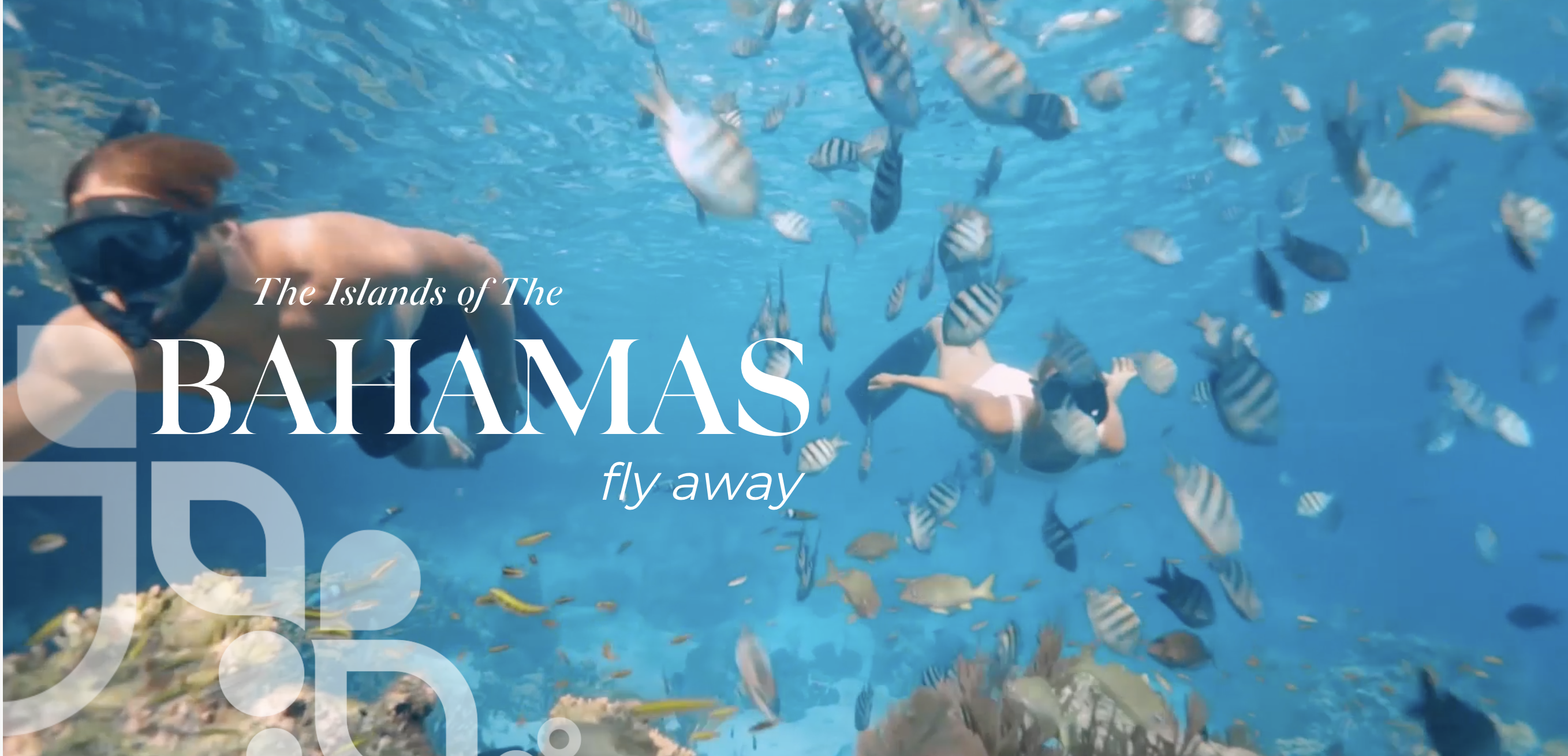
New Rules in Effect for Vaccinated Travellers
NASSAU, Bahamas, April 30, 2021 – The Government of The Bahamas announced updated public health measures and entry protocols for fully vaccinated travellers, stating:
- Effective immediately, Bahamian citizens and residents who are fully vaccinated – after receiving their second dose – will be exempt from COVID-19 testing requirements when travelling inter-island from New Providence, Grand Bahama, Abaco, Exuma and Eleuthera to any other island.
- Effective May 1, 2021, international visitors travelling to The Bahamas from other countries who are fully vaccinated and have passed the two-week immunity period will be exempt from testing requirements for entry and inter-island travel.
- REQUIREMENTS FOR VACCINATED TRAVELLERS Vaccinated travellers will still need to apply for the Bahamas Travel Health Visa and will be required to upload proof of vaccination (such as CDC or government issued vaccine record card) with their application in place of PCR test requirement. They will not need to provide a negative COVID-19 PCR test prior to entry, submit to rapid testing mandates or complete the daily health questionnaire during their stay. At this time, the Bahamas Government will only be accepting vaccines by Pfizer, Moderna, Johnson & Johnson and AstraZeneca.
- REQUIREMENTS FOR UNVACCINATED TRAVELLERS Travellers who are not fully vaccinated will be required to follow all existing entry testing requirements including applying for a Bahamas Travel Health Visa, providing proof of negative PCR test taken no more than five (5) days prior to arrival and completing the daily health questionnaire, as well as conducting rapid COVID-19 antigen testing, if they are staying in The Bahamas for longer than four (4) nights and five (5) days.
- REQUIREMENTS FOR ALL TRAVELLERS All visitors and residents will be required to apply for the Bahamas Travel Health Visa and adhere to health and safety protocols on island such as mask wearing, social distancing and frequent hand washing among others. Health and safety remain our highest priority, and we must continue to be vigilant.
- Due to the fluidity of COVID-19, the Government of The Bahamas will continue to monitor cases across the islands and loosen or tighten restrictions as needed. The Bahamas is an archipelago with more than 700 islands and cays, spread over 100,000 square miles, which means conditions and instances of the virus can be different on each of the 16 islands available to welcome visitors. Travellers should continue to check the status of their island destination before travelling, by visiting Bahamas.com/travelupdates.
Administration
Your Gov Your Voice
Budget 2023
Privacy Policy
Terms of Use
Accessibility Statement
Cecil Wallace-Whitfield Centre P.O. Box:CB-10980 Nassau, Bahamas
© Office of the Prime Minister 2023. All Rights Reserved.
- Search Please fill out this field.
- Manage Your Subscription
- Give a Gift Subscription
- Newsletters
- Sweepstakes
- Flight Deals
- Travel Deals
Explore more in
- Favorites & Watchlist Find a Cruise Cruise Deals Cruise Ships Destinations Manage My Cruise FAQ Perfect Day at CocoCay Weekend Cruises Crown & Anchor Society Cruising Guides Gift Cards Contact Us Royal Caribbean Group
- Back to Main Menu
- Search Cruises " id="rciHeaderSideNavSubmenu-2-1" class="headerSidenav__link" href="/cruises" target="_self"> Search Cruises
- Cruise Deals
- Weekend Cruises
- Last Minute Cruises
- Family Cruises
- 2024-2025 Cruises
- All Cruise Ships " id="rciHeaderSideNavSubmenu-4-1" class="headerSidenav__link" href="/cruise-ships" target="_self"> All Cruise Ships
- Cruise Dining
- Onboard Activities
- Cruise Rooms
- The Cruise Experience
- All Cruise Destinations " id="rciHeaderSideNavSubmenu-5-1" class="headerSidenav__link" href="/cruise-destinations" target="_self"> All Cruise Destinations
- Cruise Ports
- Shore Excursions
- Perfect Day at CocoCay
- Caribbean Cruises
- Bahamas Cruises
- Alaska Cruises
- European Cruises
- Mediterranean Cruises
- Royal Destinations
- Cruise Planner
- Make a Payment
- Check-In for My Cruise
- Beverage Packages
- Shore Excursions
- Book a Flight
- Dining Packages
- Royal Gifts
- Required Travel Documents
- Transportation
- Book a Hotel
- Redeem Cruise Credit
- All FAQs " id="rciHeaderSideNavSubmenu-7-1" class="headerSidenav__link" href="/faq" target="_self"> All FAQs
- Boarding Requirements
- Future Cruise Credit
- Travel Documents
- Check-in & Boarding Pass
- Transportation
- Perfect Day at CocoCay
- Post-Cruise Inquiries
- Royal Caribbean
- Celebrity Cruises
Questions related to Boarding Requirements
Still need help contact us, get support by phone or email.
Email Your Questions
Locate a Travel Agent
Previewing: Promo Dashboard Campaigns
My Personas
Code: ∅.
Watch CBS News
Disney Cruise Line to require passengers sailing to Bahamas get COVID-19 vaccine
By Kate Gibson
August 25, 2021 / 3:49 PM EDT / MoneyWatch
Disney Cruise Line will start requiring proof of vaccination against COVID-19 for U.S. passengers boarding ships to the Bahamas next month, the first time the company has issued such a mandate for ships sailing from domestic ports.
The U.S. has seen a flood of new vaccine mandates in recent days following the Food and Drug Administration giving its full approval to the Pfizer-BioNTech vaccine . The agency's final clearance came Monday came amid a surge of new coronavirus cases and hospitalizations spurred by the highly contagious Delta variant. More than 19,000 Americans have died of COVID-19 over the last month, and nearly 631,000 have died from the virus since the pandemic began.
Starting September 3, 2021, passengers 12 and older must be fully vaccinated at least 14 days before boarding any ship heading to the Bahamas, Disney announced on Tuesday. That includes Castaway Cay, Disney's private island, the company stated. The new rule is in place until November.
Children younger than 12 are exempt but will need to bring along proof of a negative COVID-19 PCR test taken between five days and 24 hours before boarding, as well as a second test at the terminal, Disney said.
The new rules come after the Bahamas issued an emergency order earlier this month saying it would require all cruise passengers 12 and older to show proof of vaccination.
Royal Caribbean updated its policy last week, requiring passengers 12 and older to be fully vaccinated for cruises departing from any U.S. port, with the mandate taking effect September 3 for cruises leaving Florida for the Bahamas. The cruise line had four vaccinated adults and two unvaccinated minors test positive for COVID-19 on a ship traveling from the Bahamas last month, USA Today reported .
MSC Cruises is also implementing a similar policy beginning September 3.
Carnival Cruise made a similar move on Sunday, announcing it would require that all passengers older than 12 be inoculated, expanding a prior policy that required at least 95% of all passengers and crew be vaccinated. The updated policy takes effect August 28 and exempts those with medical conditions that preclude vaccination.
Carnival faces multiple lawsuits stemming from outbreaks on its ships early last year, in which at least 10 people perished, according to the U.S. Centers for Disease Control and Prevention.
More recently, Oklahoma resident Marilyn Tackett, 77, was among the 27 positive cases aboard the Carnival Vista, which left from Galveston, Texas, in late July. Tackett died this week of COVID-19, according to the Washington Post. The cruise line told the newspaper it was saddened to hear of Tackett's death but added that she "almost certainly did not contract COVID on our ship."
Following a federal judge's approval of a challenge by Norwegian Cruise Line of an executive order by Gov. Ron DeSantis banning vaccine mandates, cruise companies have more leeway to require proof of vaccination from passengers leaving from Florida. The Republican governor is appealing the decision to the 11th U.S. Circuit Court. For now, Norwegian Cruise Line is requiring all passengers be fully vaccinated.
Kate Gibson is a reporter for CBS MoneyWatch in New York, where she covers business and consumer finance.
More from CBS News

What to know about 2024 COVID vaccine, guidelines, free tests and more

3 big benefits of gold investing this September

How do you qualify for credit card debt consolidation?

Sharp drop puts stocks on track for their worst day in nearly a month
Do I need a COVID vaccine to cruise? A line-by-line guide

When the first cruises allowing Americans restarted in spring 2021, all major lines were sailing with at least 90% of passengers vaccinated against COVID-19. That meant they required just about everyone on board to have their shots, with only a few exceptions allowed for young children and people who can't be vaccinated due to medical conditions or religious beliefs.
Since then, the Centers for Disease Control and Prevention has withdrawn its opt-in guidance for cruise lines, and most are now allowing unvaccinated passengers to sail. In fact, most aren't even checking to see if cruisers are vaccinated or not.
However, with cases picking up seasonally and new booster vaccines rolling out, will you need a vaccine to cruise? Click on your favorite cruise line above, under "Jump to Section," to find out.
For more cruise news, reviews and tips, sign up for TPG's new cruise newsletter .
Note: In order to be considered "fully vaccinated," passengers must have received their final shot (not including boosters) at least 15 days prior to embarkation. Most lines only accept vaccines (or a combination of vaccines) recognized and approved by the World Health Organization and the CDC. Generally, proof of inoculation must include your name, the type of vaccine you received and the dates on which you received all required doses.
Booster shots are not required unless specifically noted. However, keep in mind that the rules may vary by country, with some lines requiring boosters for international departures due to local regulations or for extra-long sailings like ocean crossings when port calls are few or nonexistent. Passengers who have their boosters are considered "up to date" rather than merely "fully vaccinated."
For general information on testing, please refer to our article on cruise testing requirements .
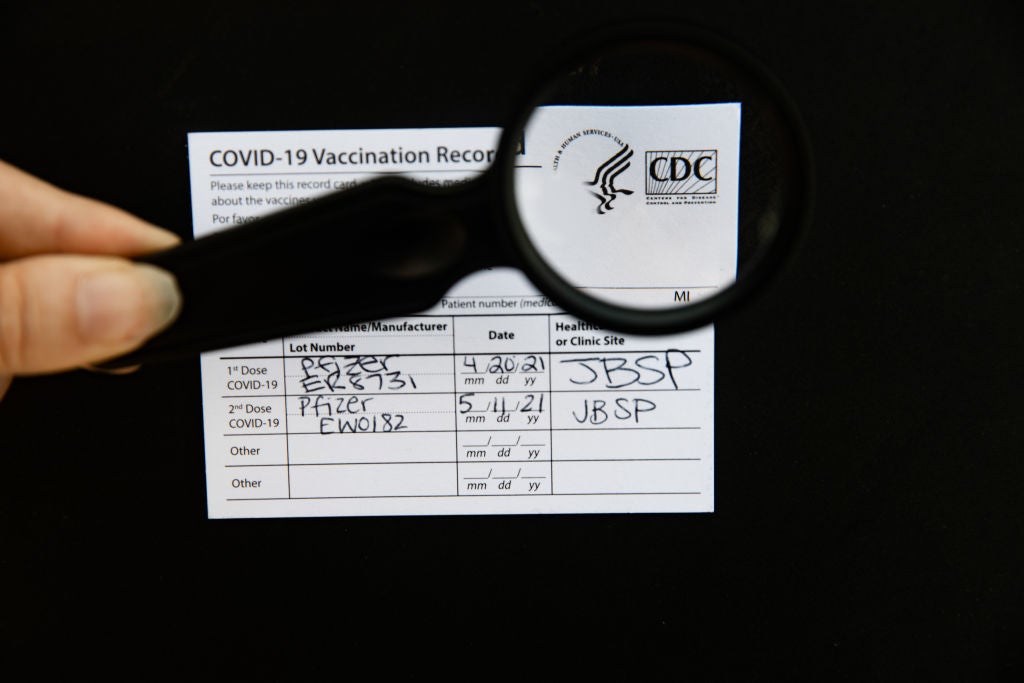
AmaWaterways
Vaccine required no.
AmaWaterways no longer requires proof of vaccination for passengers. However, cruisers are responsible for meeting the requirements of the countries in which they'll be traveling. If they do not, standard cancellation fees will apply. Pre-cruise testing is not required. Should passengers become ill during their cruise, AmaWaterways will assist in procuring testing and other medical services, which will be the financial responsibility of those guests.
American Cruise Lines
American Cruise Lines does not have a vaccine requirement for all passengers on any of its sailings. Pre-cruise testing is no longer required.
American Queen Voyages
Vaccines are not required to sail with American Queen Voyages , and pre-cruise testing is no longer required.
Related: What happens if someone tests positive for COVID-19 on your cruise
Atlas Ocean Voyages
Vaccination is not mandatory for Atlas cruises, but passengers must comply with regulations in countries on their scheduled itinerary, which could require that they be up to date on their shots. Additionally, pre-cruise testing is no longer a requirement.
Avalon Waterways
Avalon Waterways no longer requires proof of vaccination or a negative test prior to passenger boarding. However, mandatory testing and proof of vaccination could still be required in some countries the line visits.
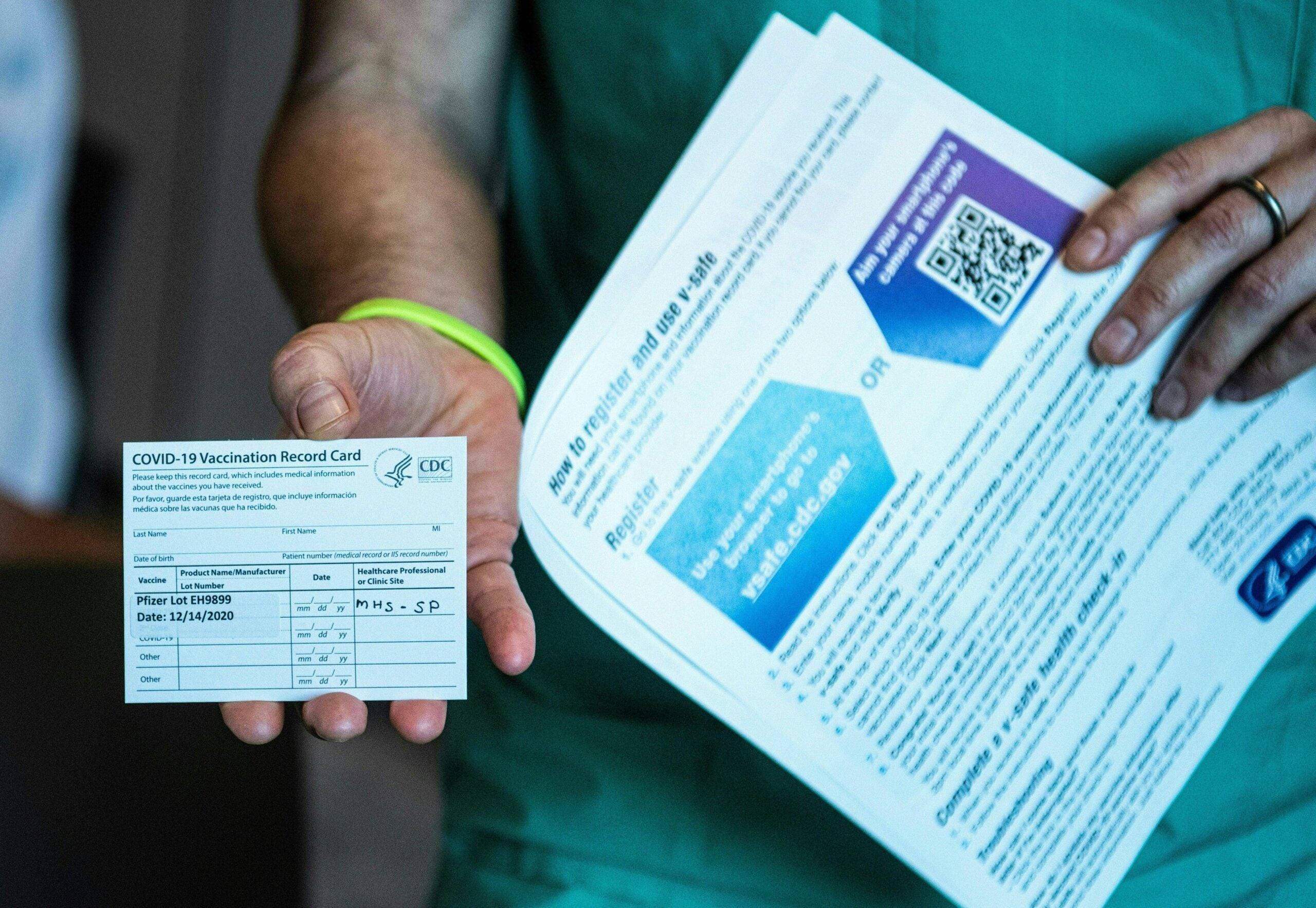
Azamara recommends that passengers follow local regulations and the latest guidance from government health organizations when determining which vaccines to obtain prior to travel. The line also does not require negative test results in order to board unless mandated by local governments in the ports where the line's ships sail.
Carnival Cruise Line
Neither vaccines nor pre-cruise testing is required for Carnival sailings. However, the line recommends that anyone 5 years or older be up to date on their shots and carry proof. It also suggests that cruisers test themselves no further than three days from their sailing date to make sure they're in good health.
Celebrity Cruises
Celebrity does not mandate vaccination or testing for any passenger on any sailing unless required by regulations in the ports its ships are visiting.
Related: Cruise ship contact tracing: How the world's major lines are tracking COVID-19 exposure
Celestyal Cruises
Celestyal continues to require all crew members to be fully vaccinated, but passengers don't have to be. The line recommends anyone 12 and older be up to date on their inoculations. Testing is also no longer necessary in order to board Celestyal ships.
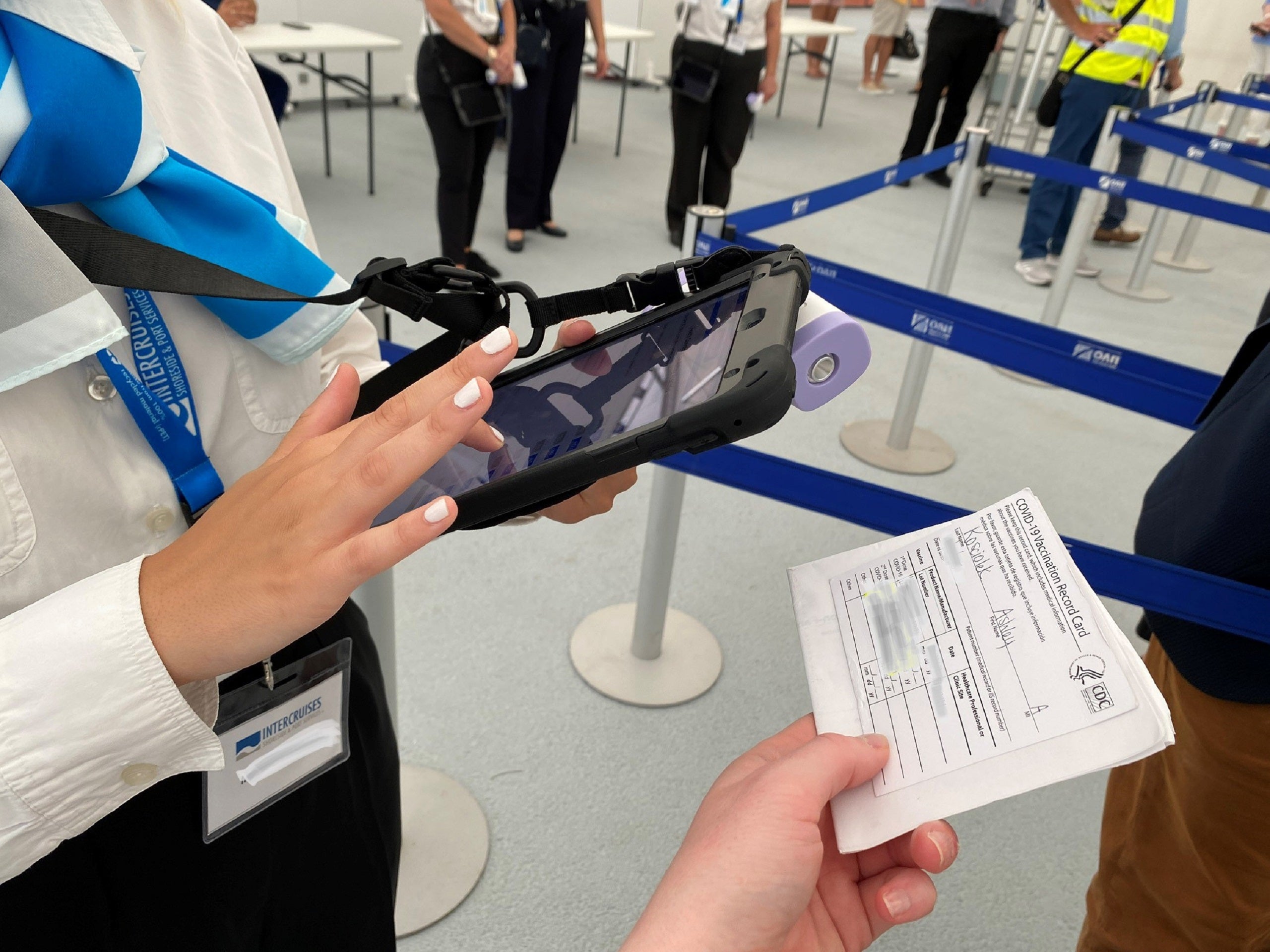
Cunard Line
Although Cunard suggests that travelers be fully vaccinated and current with their boosters, proof of immunization is not required, nor is pre-cruise testing for any of the line's sailing unless required by law.
Disney Cruise Line
Disney Cruise Line encourages — but does not require — all passengers to be fully vaccinated before sailing. It also recommends pre-cruise testing, no more than two days prior to embarkation, for anyone who doesn't have their shots.
Emerald Cruises
Emerald Cruises suggests that all passengers be vaccinated, but it no longer checks for proof. Pre-cruise testing is also no longer required, but the line advises travelers to check local regulations in the places they'll be visiting.
Grand Circle Cruise Line
Vaccine required yes.
Grand Circle has mandated that all passengers must be fully vaccinated at least 14 days prior to embarkation as a condition of carriage, and proof must be provided before boarding. Passengers who are not fully vaccinated will have to return home at their own expense. Boosters are not mandatory. Pre-cruise testing might be required, depending on your port of embarkation. (The line will send you that information prior to your sailing.)
Hapag-Lloyd Cruises
Hapag-Lloyd does not require vaccinations or pre-cruise testing as a condition of sailing. However, the line recommends both to passengers as precautions. It also advises that cruisers are responsible for knowing and adhering to all local guidelines and regulations.
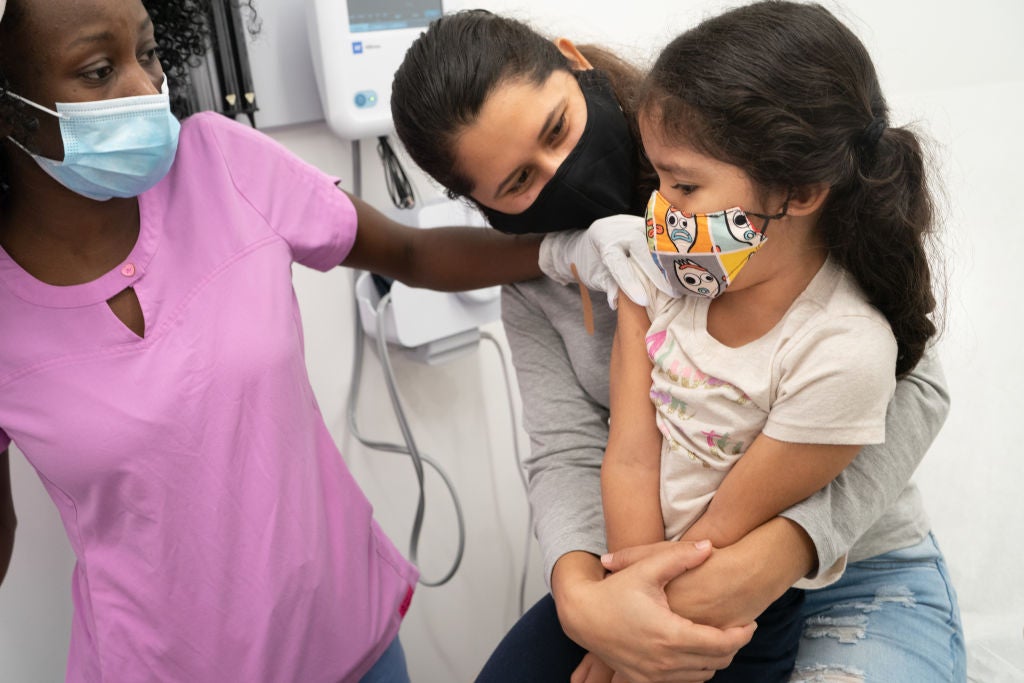
Holland America
Holland America now allows unvaccinated passengers to sail and does not make pre-cruise testing compulsory unless either of these is required by local regulations in the areas its vessels sail. Booked cruisers can search for requirements specific to their individual sailings by using this tool .
Hurtigruten
Vaccine required sometimes.
On expedition cruises with Hurtigruten , passengers are not required to show proof of vaccination, except on 2023 and 2024 voyages to Antarctica and the Northwest Passage or West Africa sailings departing from and returning to Dakar. Immunization is also not necessary for the line's non-expedition itineraries, but it is recommended for both coastal voyages and expedition cruises. Neither type of cruise requires negative test results as a condition of embarkation. Passengers with reservations can check specific protocols for their specific bookings using this tool .
Lindblad Expeditions
Lindblad passengers no longer need to provide proof of vaccination in order to cruise, and pre-cruise testing is no longer required, including at embarkation. Exceptions might apply for departures from certain destinations. The line urges passengers to follow government recommendations for masking, testing and vaccination.
Related: Why I feel safer now on a cruise ship than in my hometown

MSC Cruises
Vaccination and testing are no longer terms of carriage when sailing with MSC Cruises . The line still recommends that passengers receive their shots and notes that it's each passenger's responsibility to comply with local regulations in the places their sailing visits.
Norwegian Cruise Line
In early August 2022, Norwegian Cruise Line became the first major cruise line to roll back its vaccination requirements. Proof of immunization is no longer required, nor is testing in order to board for any voyage.
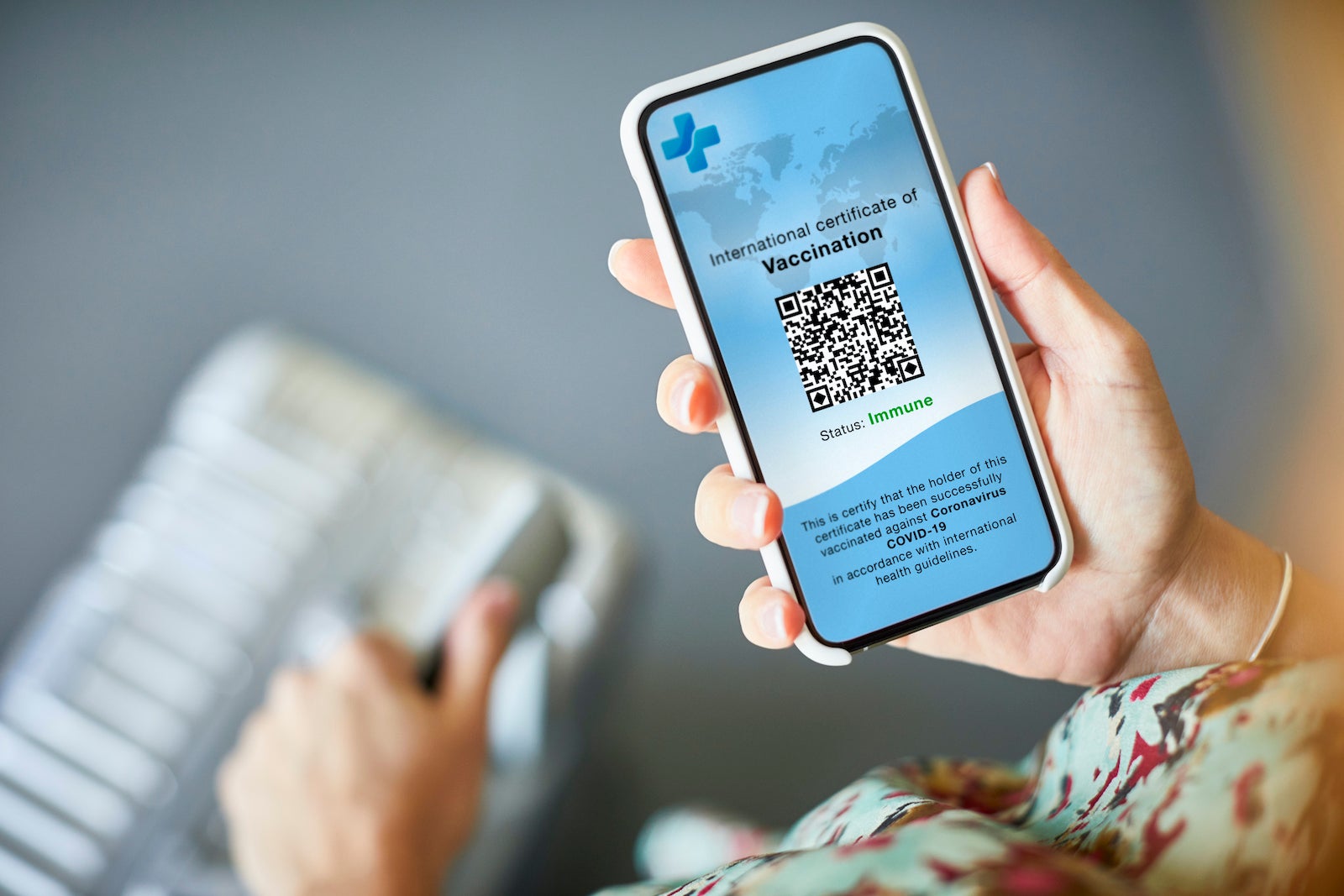
Oceania Cruises
Upscale cruise line Oceania does not check vaccination records for passengers, nor does it require pre-cruise testing for its sailings.
P&O Cruises
There are no vaccination or testing mandates in place for any of P&O Cruises ' voyages.
Ponant 's website simply reads, "when you visit certain destinations, vaccines can be recommended," but they are not required by the line. Ponant also says it will alert passengers to their specific requirements after they have booked a voyage. Testing is also not needed in order to board.
Princess Cruises
Following an industry-wide rollback of protocols, Princess passengers no longer have to show proof of a COVID-19 vaccine, nor proof of a negative test result, unless either is required by local regulations. Passengers are responsible for knowing the requirements for the places their ships will visit.
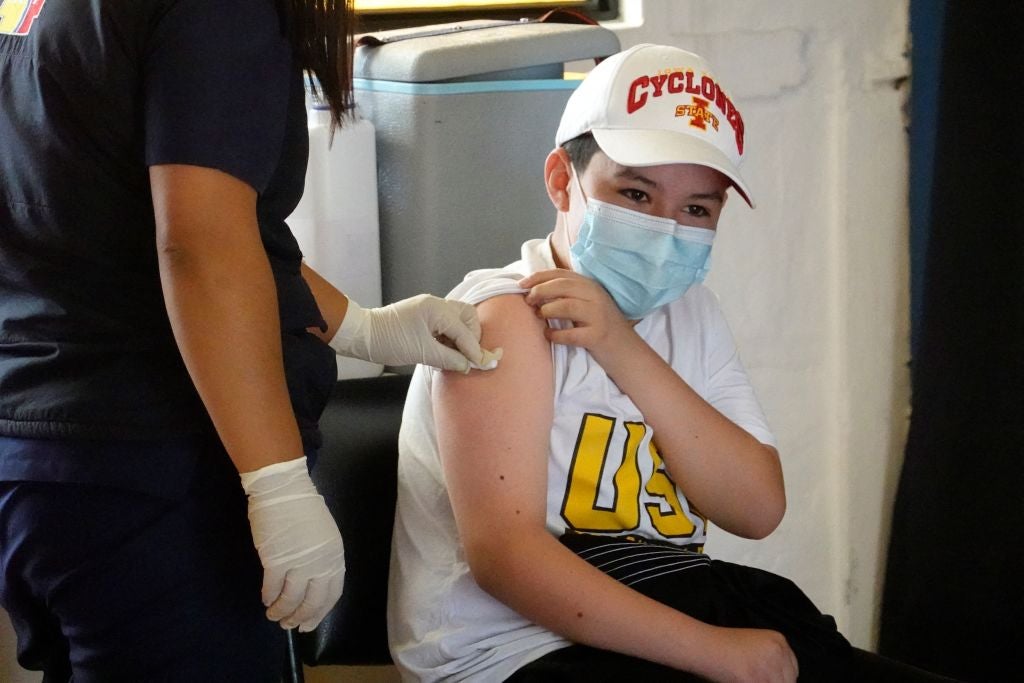
Regent Seven Seas Cruises
Regent doesn't check the vaccination status of any of its passengers unless required by local protocols. Testing requirements vary by location and might depend on whether or not you are up to date on your shots. If vaccination or testing is required, the line will alert cruisers approximately 30 days prior to their sailing date.
Royal Caribbean
To board Royal Caribbean ships, you don't have to be vaccinated or provide test results. However, the line advises staying up to date on inoculations and following guidelines issued by federal health authorities.
Saga has rolled back its vaccination and testing requirements, which is significant, given that the line only allows passengers 50 and older to sail on its vessels. They will only be required if local authorities dictate them.
Scenic Luxury Cruises & Tours
Passengers embarking on river and ocean voyages with Scenic will not need to be fully immunized prior to sailing. Testing is not required by the line but might be needed to enter the country in which you're embarking on your sailing. Passengers are responsible for meeting entry requirements.
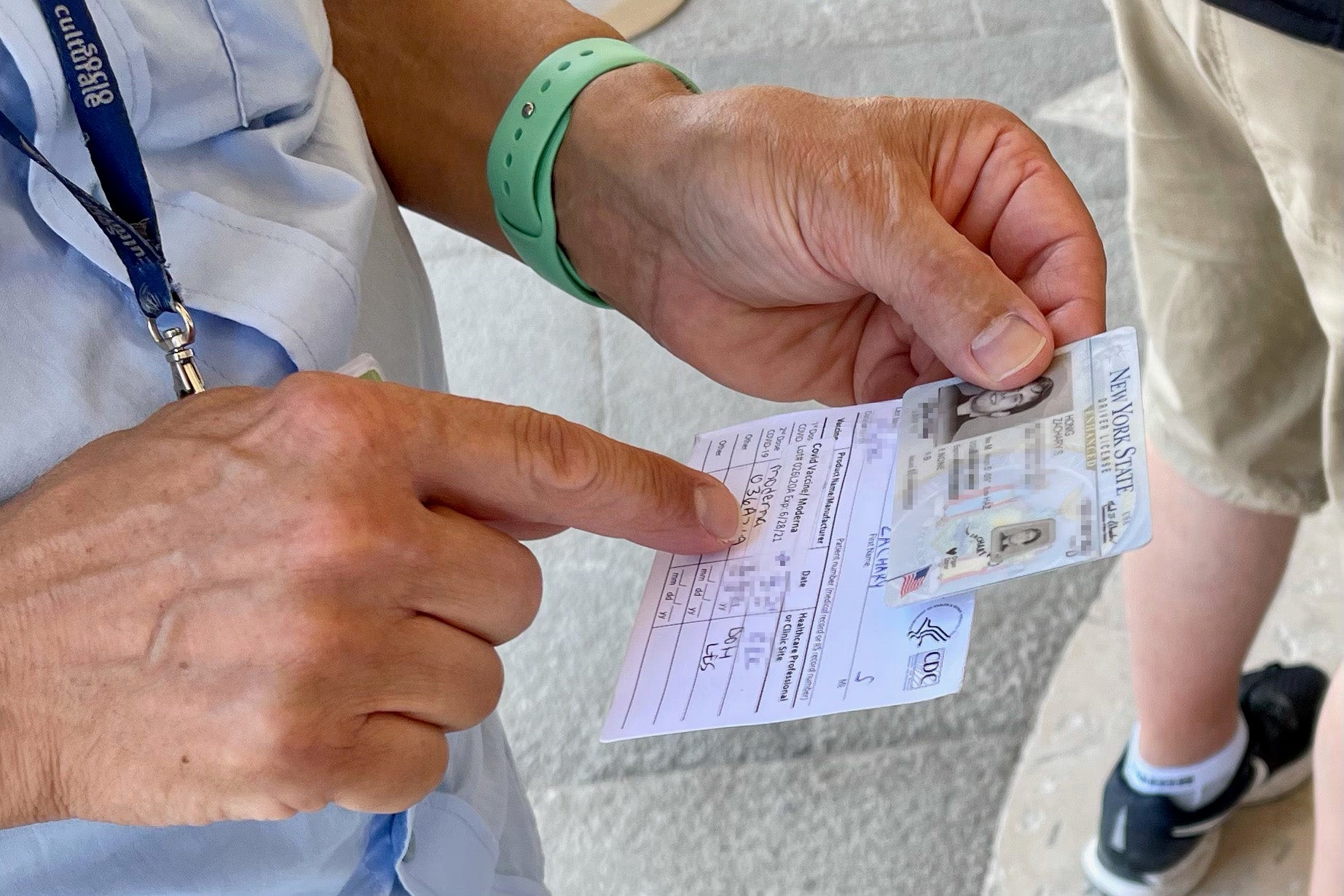
For cruises with luxury line Seabourn , there are no line-enforced regulations for vaccination or testing unless required by local authorities in the countries on which its vessels call. To see if your booked sailing requires either of these, check out the line's search tool .
Luxury brand Silversea does not require shots for its passengers or pre-cruise tests unless they're needed to meet local regulations.
Star Clippers
Star Clippers has eliminated all vaccine checks and testing protocols for all passengers on all voyages.
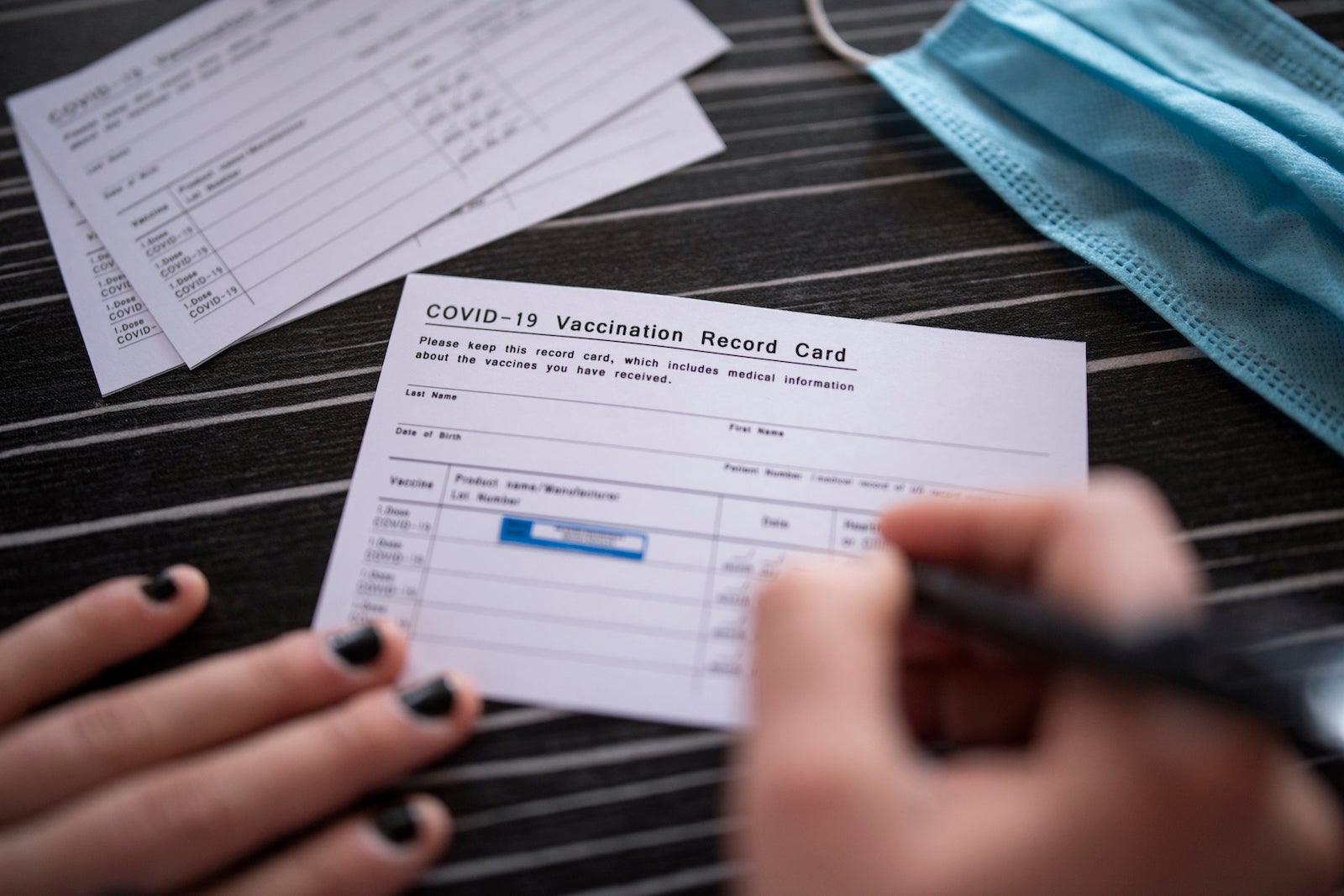
For all voyages through 2023, Tauck requires passengers 12 and older to be fully vaccinated and have at least one booster dose and/or show proof of recovery from COVID-19. Passengers 11 years old and younger are not required to be fully vaccinated. If they aren't fully vaccinated or don't have a booster, they must provide proof of a negative PCR or antigen test result from a test taken no more than three days prior to embarkation. For sailings in 2024, vaccination and testing requirements will be waived for all passengers.
UnCruise Adventures
All UnCruise passengers are exempt from vaccine and testing requirements. The line will continue to monitor the effects of new variants, as well as CDC recommendations and will adjust its policies accordingly.
Uniworld Boutique River Cruise Collection
Testing requirements are determined by the countries the ships visit, but the line itself has no vaccine or testing mandates of its own. You can check the protocols for the places on your itinerary for the most up-to-date information by visiting the protocols page on Uniworld's website .
All Viking passengers, whether on a river sailing or an ocean voyage, must be fully vaccinated for sailings departing on or before Oct. 31, 2023. It will not be required for cruisers embarking on or after Nov. 1, 2023. Testing is no longer required unless passengers are exhibiting symptoms and seek medical assistance.
Virgin Voyages
Virgin Voyages will not check proof of immunization or a negative COVID-19 test prior to boarding.
Windstar Cruises
Windstar no longer mandates shots for passengers of any age. Testing is not required by the line but might be necessary based on local regulations, which with passengers must comply.
Planning a cruise? Start with these stories:
- The 5 most desirable cabin locations on any cruise ship
- The 8 worst cabin locations on any cruise ship
- A quick guide to the most popular cruise lines
- 21 tips and tricks that will make your cruise go smoothly
- 15 ways cruisers waste money
- 15 best cruises for people who never want to grow up
- What to pack for your first cruise
Cookies on GOV.UK
We use some essential cookies to make this website work.
We’d like to set additional cookies to understand how you use GOV.UK, remember your settings and improve government services.
We also use cookies set by other sites to help us deliver content from their services.
You have accepted additional cookies. You can change your cookie settings at any time.
You have rejected additional cookies. You can change your cookie settings at any time.
Entry requirements
This information is for people travelling on a full ‘British citizen’ passport from the UK. It is based on the UK government’s understanding of The Bahamas’ current rules for the most common types of travel.
The authorities in The Bahamas set and enforce entry rules. If you’re not sure how these requirements apply to you, contact The Bahamas High Commission in the UK .
COVID-19 rules
There are no COVID-19 testing or vaccination requirements for travellers entering The Bahamas.
Passport validity requirements
To enter The Bahamas, your passport must have an ‘expiry date’ at least 6 months after the date you plan to leave.
Visa requirements
You can usually stay in The Bahamas for up to 30 days without a visa. You can get extensions up to a maximum of 8 months . Penalties for overstaying include a fine, detention and deportation. The Bahamas High Commission lists more information about visas .
If you arrive in The Bahamas from the USA, and you have an Electronic System for Travel Authorization (ESTA) , the time you spend in The Bahamas counts towards the 90 days you have on your ESTA. If you are in any doubt about your US visa status, ask the US Immigration and Naturalization Service or any US diplomatic mission before starting your return journey.
Vaccine requirements
To enter The Bahamas, you must have a certificate to prove you’ve had a yellow fever vaccination if you’re coming from a country listed as a transmission risk .
For full details about medical entry requirements and recommended vaccinations, see TravelHealthPro’s Bahamas guide .
Customs rules
There are strict rules about goods you can take into or out of The Bahamas . You must declare anything that may be prohibited or subject to tax or duty.
Related content
Is this page useful.
- Yes this page is useful
- No this page is not useful
Help us improve GOV.UK
Don’t include personal or financial information like your National Insurance number or credit card details.
To help us improve GOV.UK, we’d like to know more about your visit today. Please fill in this survey (opens in a new tab) .
- Travel Advisories |
- Contact Us |
- MyTravelGov |
Find U.S. Embassies & Consulates
Travel.state.gov, congressional liaison, special issuance agency, u.s. passports, international travel, intercountry adoption, international parental child abduction, records and authentications, popular links, travel advisories, mytravelgov, stay connected, legal resources, legal information, info for u.s. law enforcement, replace or certify documents.
Before You Go
Learn About Your Destination
While Abroad
Emergencies
Share this page:
The Bahamas
Travel Advisory January 26, 2024
The bahamas - level 2: exercise increased caution.
Updated with additional water safety information.
Exercise increased caution in The Bahamas due to crime .
Country Summary : The majority of crime occurs on New Providence (Nassau) and Grand Bahama (Freeport) islands. In Nassau, practice increased vigilance in the “Over the Hill” area (south of Shirley Street) where gang-on-gang violence has resulted in a high homicide rate primarily affecting the local population. Violent crime, such as burglaries, armed robberies, and sexual assaults, occur in both tourist and non-tourist areas. Be vigilant when staying at short-term vacation rental properties where private security companies do not have a presence.
Activities involving commercial recreational watercraft, including water tours, are not consistently regulated. Watercraft may be poorly maintained, and some operators may not have safety certifications. Always review and heed local weather and marine alerts before engaging in water-based activities. Commercial watercraft operators have discretion to operate their vessels regardless of weather forecasts; injuries and fatalities have occurred. Due to these safety concerns, U.S. government personnel are not permitted to use independently operated jet-ski rentals on New Providence and Paradise Islands.
Never swim alone, regardless of your age or level of swimming skills. Keep within your fitness and swimming capabilities. Be mindful of sharks when swimming and engaging in water activities, as there have been recent fatal and non-fatal incidents involving sharks. Be aware of weather and water conditions and heed local warnings.
Read the country information page for additional information on travel to The Bahamas.
If you decide to travel to The Bahamas:
- Do not answer your door at your hotel/residence unless you know who it is.
- Do not physically resist any robbery attempt.
- Enroll in the Smart Traveler Enrollment Program (STEP) to receive Alerts and make it easier to locate you in an emergency.
- Follow the Department of State on Facebook , Twitter , and Instagram .
- Review the Country Security Report for The Bahamas.
- Prepare a contingency plan for emergency and medical situations. Review the Traveler’s Checklist .
- Visit the CDC page for the latest Travel Health Information related to your travel.
Embassy Messages
View Alerts and Messages Archive
Quick Facts
Passports must be valid at time of entry through departure (throughout the duration of stay).
Two pages are required for entry stamp.
Visitors must declare currency and other negotiable instruments of $10,000 or more upon entry.
Visitors must declare currency and other negotiable instruments of $10,000 or more upon exit.
Embassies and Consulates
U.s. embassy nassau.
P.O. Box N-8197 #42 Queen Street Nassau, The Bahamas Telephone: +(242) 322-1181 Emergency After-Hours Telephone: +(242) 322-1181 Email: [email protected]
Destination Description
Learn about the U.S. relationship to countries around the world.
Entry, Exit and Visa Requirements
Visit the Bahamas Immigration website for the most current visa information. U.S. citizens are generally required to present a valid U.S. passport when traveling to The Bahamas, as well as proof of anticipated departure from The Bahamas. Those traveling to The Bahamas on a cruise may use another Western Hemisphere Travel Initiative (WHTI) compliant document, such as a U.S. passport card. However, we strongly recommend you obtain a passport before travel in case of an unforeseen emergency that requires you to disembark and return by air. U.S. travelers coming for tourism will not need a visa for travel up to 90 days. All other travelers will need a visa and/or work permit.
The Bahamas requires compliance with regulations to divert child abduction similar to U.S. policies . Review those policies before traveling.
HIV/AIDS restrictions: The U.S. Department of State is unaware of any HIV/AIDS entry restrictions for visitors to or foreign residents of The Bahamas. Find information on dual nationality , prevention of international child abduction , and customs regulations on our websites.
Safety and Security
Crime: The Department of State rates the criminal threat level in New Providence Island (includes Nassau and Paradise Island) as critical. The vast majority of crime occurs on New Providence (Nassau) and Grand Bahama (Freeport) Islands. Criminal activity on the outlying Family Islands does occur, but to a much lesser degree than on New Providence or Grand Bahama. In Nassau, exercise caution in the “Over the Hill” area (south of Shirley Street). Violent crime such as burglaries, armed robberies, and sexual assaults occur, but generally not in tourist areas. For the latest security messages , visit our website. Find more information about common safety and security concerns in The Bahamas including credit card fraud , real estate matters , and water sport and scooter safety on our website. Victims of Crime: U.S. citizen victims of sexual assault are encouraged to contact the U.S. Embassy for assistance. Report crimes to the local police at 919 or 911, and contact the U.S. Embassy at +(242) 322-1181. Remember that local authorities are responsible for investigating and prosecuting the crime.
See our webpage on help for U.S. victims of crime overseas .
- help you find appropriate medical care
- assist you in reporting a crime to the police
- contact relatives or friends with your written consent
- explain the local criminal justice process in general terms
- provide a list of local attorneys
- provide information on victim’s compensation programs in the United States
- provide an emergency loan for repatriation to the United States and/or limited medical support in cases of destitution
- help you find accommodation and arrange flights home
- replace a stolen or lost passport
Domestic Violence: U.S. citizen victims of domestic violence may contact the Embassy for assistance.
Adventure Tourism: Activities involving commercial recreational watercraft, including water tours, are not consistently regulated. Watercraft are often not maintained, and many companies do not have safety certifications to operate in The Bahamas. Reconsider going on the water in rough seas or inclement weather, as accidents and fatalities have occurred in such conditions. U.S. citizens seeking to engage in adventure tourism-related activities, including boat tours, are strongly encouraged to confirm the following with any tour operator:
- Credentials and certification to operate in The Bahamas
- Liability in the event of an accident
- Safety and rescue protocols for guides
Jet-Ski Operators: Jet-ski operators have been known to commit sexual assaults against tourists. As a result, U.S. government personnel are not permitted to use independently operated jet-ski rentals on New Providence and Paradise Islands.
Watersports Advisory: Carefully assess the potential risks of recreational water activities and consider your physical capabilities and skills. Be aware of sharks when in or on the water, as shark bites do occur and can result in serious injury or death. Never venture out alone, particularly at isolated beaches or far out to sea. Avoid entering the water above your waist if you have been drinking and always be mindful of jet ski and boat traffic in the area. Do not engage in water activities during times of inclement weather or rough seas. Commercial watercraft operators have discretion to operate their vessels regardless of weather forecasts; injuries and fatalities have occurred.
Hurricanes: Hurricane season generally runs from June through November, although hurricanes can occur outside that period. Monitor local weather reports closely. Airports and seaports cease operations well before a predicted storm arrives, and seats on most commercial transportation may sell out far in advance. For more information on hurricane preparedness, please refer to the Department of State’s page on Crisis Abroad and the U.S. Embassy Nassau’s Hurricane Preparedness page.
Tourism: The tourism industry is unevenly regulated, and safety inspections for equipment and facilities do not commonly occur. Hazardous areas/activities are not always identified with appropriate signage, and staff may not be trained or certified either by the host government or by recognized authorities in the field. In the event of an injury, appropriate medical treatment is typically available only in/near major cities. First responders are generally unable to access areas outside of major cities and to provide urgent medical treatment. U.S. citizens are encouraged to purchase medical evacuation insurance .
Local Laws & Special Circumstances
Criminal Penalties: You are subject to local laws. If you violate local laws, even unknowingly, you may be expelled, arrested, or imprisoned. Individuals establishing a business or practicing a profession that requires additional permits or licensing should seek information from the competent local authorities, prior to practicing or operating a business.
Furthermore, some laws are also prosecutable in the United States, regardless of local law. For examples, see our website on crimes against minors abroad and the Department of Justice website.
Drugs: Marijuana and all products that contains its derivatives such as cannabidiol (CBD) and tetrahydrocannabinol (THC) -- to include gummies, oils and other edible products -- are NOT legal in The Bahamas. Having a prescription or medical card for cannabis/marijuana does not exempt you from being prosecuted under Bahamian law, which makes no distinction between medical and recreational use of marijuana.
The possession or use of illegal drugs, including marijuana, cocaine, and ecstasy, is a criminal offense in The Bahamas and can result in time in prison. While visiting The Bahamas, you are subject to Bahamian law. Drug violators are regularly arrested, even for possession of small quantities . All persons 16 years of age or older in The Bahamas are tried as adults in court. If you are arrested for drug possession, you should expect to spend at least one night, and possibly longer, in custody. Stay away from drug traffickers, who may be often armed and violent. Do not accept packages from people you meet during your stay.
Firearms, Ammunition, and other weapons are not permitted in The Bahamas . According to The Bahamas Firearms Act, individuals found to have a firearm or ammunition in their possession without a legally issued Bahamian gun license face a penalty of up to 10 years’ incarceration and $10,000 fine. Declaring the weapon in your luggage with an airline carrier does not grant permission to bring the weapon into The Bahamas.
If you have a firearm or ammunition onboard a boat entering Bahamian waters, you must declare it with Bahamian Customs at the first point of entry. Only declared shotguns and handguns are allowed in Bahamian waters. You must provide the serial number, name of the manufacturer, and an exact count of ammunition. Declared firearms cannot be removed from your boat and must be kept locked at all times.
If a U.S. citizen illegally brings a firearm or ammunition into The Bahamas, the U.S. Embassy will not be able to secure their release. All foreign nationals are subject to Bahamian law and must follow local law enforcement procedures. Please read more information on the Department of State’s page for Travelers With Firearms here .
Arrest Notification: If you are arrested or detained, ask police or prison officials to notify the U.S. Embassy immediately. See our webpage for further information. Travelers should also be aware that Bahamian laws do not include a right to a public defender in lower courts. Any legal representation is at the expense of the visitor.
Faith-Based Travelers: See the following webpages for details:
- Faith-Based Travel Information
- International Religious Freedom Report – see country reports
- Human Rights Report – see country reports
- Hajj Fact Sheet for Travelers
- Best Practices for Volunteering Abroad
LGBTI Travelers: There are no legal restrictions on same-sex sexual relations or the organization of LGBTI events in The Bahamas.
See our LGBTI Travel Information page and section 6 of our Human Rights report for further details.
Travelers Who Require Accessibility Assistance . Accessibility and accommodations in The Bahamas are very different from in the United States. Newer buildings, especially in tourism-centric areas are accessible, but many older buildings are not.
Students: See our Students Abroad page and FBI travel tips .
Women Travelers: See our travel tips for Women Travelers .
For more information about customs concerns , boating , and wildlife , please visit our website.
Medical care is available on New Providence and Grand Bahama islands. However, serious illnesses or injuries might not be treatable locally. Serious health problems requiring hospitalization and/or medical evacuation to the United States can cost tens of thousands of dollars in up-front costs. Outer islands have only small clinics, and medical care is limited.
Ambulance service is available on the major islands, but traffic congestion on New Providence Island can cause delays.
We do not pay medical bills. Be aware that U.S. Medicare/Medicaid does not apply overseas. Most hospitals and doctors overseas do not accept U.S. health insurance.
Medical Insurance: Make sure your health insurance plan provides coverage overseas. Most care providers overseas only accept cash payments. See our webpage for more information on overseas insurancecoverage. Visit the U.S. Centers for Disease Control and Prevention for more information on type of insurance you should consider before you travel overseas.
We strongly recommend supplemental insurance to cover medical evacuation.
If traveling with prescription medication, check with the government of The Bahamas to ensure the medication is legal in The Bahamas. Always carry your prescription medication in its original packaging with your doctor’s prescription.
Vaccinations: Be up-to-date on all vaccinations recommended by the U.S. Centers for Disease Control and Prevention.
Further health information:
- World Health Organization
- U.S. Centers for Disease Control and Prevention (CDC)
Travel and Transportation
Road Conditions and Safety: Driving in The Bahamas is on the left-hand side of the road. Traffic congestion in Nassau is severe, and drivers frequently display aggressive or careless tendencies. Accidents involving pedestrians on New Providence Island are common. Drive defensively and be alert to cars pulling out from side streets. Local practice is to allow this on an individual basis. It is not uncommon to see poorly maintained or excessively loaded vehicles on roadways. Rural roads can be narrow, winding, and in poor condition. Road flooding occurs frequently in many areas, including Nassau and Freeport, during and after rainstorms. Be alert for unmarked or poorly marked construction zones.
Traffic Laws: Seatbelts are required for drivers and passengers in The Bahamas. Wearing helmets on a scooters and motorbikes is also compulsory.
Public Transportation: Public transportation is available by minibus (known as jitneys) and taxi. Jitneys stop frequently and often without warning at undesignated stops. Taxi fares are based on zones and surcharges can apply for additional passengers and luggage. It is important to agree on a fare prior to departing for the destination.
See our Road Safety page for more information. Visit the website of The Bahamas’ Ministry of Tourism for more information.
Aviation Safety Oversight: Aviation Safety Oversight: The U.S. Federal Aviation Administration (FAA) has assessed the government of The Bahamas’ Civil Aviation Authority as being in compliance with International Civil Aviation Organization (ICAO) aviation safety standards for oversight of The Bahamas’ air carrier operations. Further information may be found on the FAA’s safety assessment page .
Maritime Travel: Mariners planning travel to The Bahamas should also check for U.S. maritime advisories and alerts . Information may also be posted to the U.S. Coast Guard homeport website , and the NGA broadcast warnin gs .
For additional travel information
- Enroll in the Smart Traveler Enrollment Program (STEP) to receive security messages and make it easier to locate you in an emergency.
- Call us in Washington, D.C. at 1-888-407-4747 (toll-free in the United States and Canada) or 1-202-501-4444 (from all other countries) from 8:00 a.m. to 8:00 p.m., Eastern Standard Time, Monday through Friday (except U.S. federal holidays).
- See the State Department’s travel website for the Worldwide Caution and Travel Advisories .
- Follow us on X (formerly known as "Twitter") and Facebook .
- See traveling safely abroad for useful travel tips.
Review information about International Parental Child Abduction in The Bahamas . For additional IPCA-related information, please see the International Child Abduction Prevention and Return Act ( ICAPRA ) report.
Travel Advisory Levels
Assistance for u.s. citizens, bahamas map, learn about your destination, enroll in step.

Subscribe to get up-to-date safety and security information and help us reach you in an emergency abroad.
Recommended Web Browsers: Microsoft Edge or Google Chrome.
Check passport expiration dates carefully for all travelers! Children’s passports are issued for 5 years, adult passports for 10 years.
Afghanistan
Antigua and Barbuda
Bonaire, Sint Eustatius, and Saba
Bosnia and Herzegovina
British Virgin Islands
Burkina Faso
Burma (Myanmar)
Cayman Islands
Central African Republic
Cote d Ivoire
Czech Republic
Democratic Republic of the Congo
Dominican Republic
El Salvador
Equatorial Guinea
Eswatini (Swaziland)
Falkland Islands
France (includes Monaco)
French Guiana
French Polynesia
French West Indies
Guadeloupe, Martinique, Saint Martin, and Saint Barthélemy (French West Indies)
Guinea-Bissau
Isle of Man
Israel, The West Bank and Gaza
Liechtenstein
Marshall Islands
Netherlands
New Caledonia
New Zealand
North Korea (Democratic People's Republic of Korea)
Papua New Guinea
Philippines
Republic of North Macedonia
Republic of the Congo
Saint Kitts and Nevis
Saint Lucia
Saint Vincent and the Grenadines
Sao Tome and Principe
Saudi Arabia
Sierra Leone
Sint Maarten
Solomon Islands
South Africa
South Korea
South Sudan
Switzerland
Timor-Leste
Trinidad and Tobago
Turkmenistan
Turks and Caicos Islands
United Arab Emirates
United Kingdom
Vatican City (Holy See)
External Link
You are about to leave travel.state.gov for an external website that is not maintained by the U.S. Department of State.
Links to external websites are provided as a convenience and should not be construed as an endorsement by the U.S. Department of State of the views or products contained therein. If you wish to remain on travel.state.gov, click the "cancel" message.
You are about to visit:
You are using an outdated browser. Upgrade your browser today or install Google Chrome Frame to better experience this site.
Cruise Ship Travel

While cruising is a popular way to travel, there are some health concerns to be aware of. Find out more about health issues on cruises and steps you can take to stay safe and healthy during your trip.
If you are feeling sick before your voyage, do not travel and ask your cruise line about rescheduling or reimbursement options. If you feel sick during your voyage, report your symptoms to the ship’s medical center and follow their recommendations.
Common Health Concerns During Cruise Travel and What You Can Do to Prevent Illness
- Respiratory viral illnesses like COVID-19 , flu , and RSV : Follow core prevention strategies to protect yourself and others. Get your annual flu shot , stay up to date on your COVID-19 vaccines , and check if you're eligible for an RSV vaccine . Check directly with your cruise line before travel about any health requirements. If you have a weakened immune system , talk with your healthcare provider about your cruise travel plans. Wash your hands frequently or use hand sanitizer . Stay home and away from others if you have respiratory virus symptoms. Do not travel until your symptoms are improving and you have not had a fever for 24 hours (without meds). For 5 additional days, take precautions including covering your nose and mouth with a tissue to prevent spreading germs when you cough or sneeze. Consider wearing a mask in crowded or poorly ventilated indoor areas or avoiding those areas all together.
- Gastrointestinal illness: Symptoms of vomiting and diarrhea, primarily caused by outbreaks of norovirus , have been reported. To prevent gastrointestinal illness, wash your hands with soap and water before eating and after using the bathroom, changing diapers, or touching things that other people have touched, such as stair railings. Avoid touching your face. For more information, visit CDC’s Vessel Sanitation Program website.
- Seasickness: Cruise ship passengers may experience seasickness or motion sickness. If you know you get seasick or think you may be likely to get seasick, talk to your healthcare provider about medicine to reduce your symptoms. Some common medications, including some antidepressants, painkillers, and birth control pills, can make seasickness worse.
- Sunburns: Apply sunscreen with SPF 15 or higher when traveling. Protecting yourself from the sun isn’t just for tropical beaches—you can get a sunburn even if it’s cloudy or cold.
- Bug bites: On your trip, use insect repellent and take other steps to avoid bug bites. Bugs, including mosquitoes and ticks, can spread diseases such as malaria, yellow fever, Zika, dengue, chikungunya, and Lyme. Many ships visit ports where these diseases are a concern.
Before Your Trip
Check CDC’s destination pages for travel health information . Check CDC’s webpage for your destination to see what vaccines or medicines you may need and what diseases or health risks are a concern at your destination.
Make sure you are up to date with all of your routine vaccines . Routine vaccinations protect you from infectious diseases that can spread quickly in groups of people. Outbreaks of chickenpox, flu, and COVID-19 have been reported on cruise ships.
Many diseases prevented by routine vaccination are not common in the United States but are still common in other countries. Crew members and fellow travelers often board a cruise ship from destinations where some diseases are more common than in the United States or where vaccination is not routine.
Make an appointment with your healthcare provider or a travel health specialist that takes place at least one month before you leave. They can help you get destination-specific vaccines, medicines, and information. Discussing your health concerns, itinerary, and planned activities with your provider allows them to give more specific advice and recommendations.
Plan for the Unexpected
Prepare for any unexpected issues during your cruise ship travels with the following steps:
Prepare a travel health kit with items you may need, especially those items that may be difficult to find at your destination. Include your prescriptions and over-the-counter medicines in your travel health kit and take enough to last your entire trip, plus extra in case of travel delays. Depending on your destination you may also want to pack a mask , insect repellent , sunscreen (SPF 15 or higher), aloe, alcohol-based hand sanitizer, water disinfection tablets, and your health insurance card.
Get travel insurance. Find out if your health insurance covers medical care abroad. Travelers are usually responsible for paying hospital and other medical expenses out of pocket at most destinations. Make sure you have a plan to get care overseas , in case you need it. Consider buying additional insurance that covers health care and emergency evacuation, especially if you will be traveling to remote areas.
If you need medical care abroad, see Getting Health Care During Travel .
After Travel

If you traveled and feel sick, particularly if you have a fever, talk to a healthcare provider and tell them about your travel. Avoid contact with other people while you are sick.
More Information
- Cruise Ship Travel in CDC Yellow Book
- Tips for Healthy Cruising
- Maritime Guidance
File Formats Help:
- Adobe PDF file
- Microsoft PowerPoint file
- Microsoft Word file
- Microsoft Excel file
- Audio/Video file
- Apple Quicktime file
- RealPlayer file
- Zip Archive file

IMAGES
COMMENTS
All eligible travelers should be up to date with their COVID-19 vaccines. Please see Your COVID-19 Vaccination for more information. COVID-19 vaccine. Hepatitis A. Recommended for unvaccinated travelers one year old or older going to The Bahamas. Infants 6 to 11 months old should also be vaccinated against Hepatitis A.
That said, specific countries have their own requirements, and several countries still require that cruise ship passengers are vaccinated and/or tested before arrival. If you are doing an itinerary outside of the Caribbean or Europe (where most vaccine and testing requirements have been dropped)—including to select countries in Central and South America or to Australia—you still have to ...
Q. What vaccines are required to travel on a Royal Caribbean cruise? A. All guests must ensure that they are medically and physically fit for travel. The Centers for Disease Control (CDC) and the World Health Organization (WHO) provide guidelines as to which vaccinations are required in each country. In many cases inoculations are recommended ...
Please complete the short form below. NOTE: All Royal Caribbean guests aged 12 and older must present proof of COVID-19 vaccination with the final dose of their vaccine administered at least 14 days before sailing. While vaccination is not required for guests under 12, we kindly ask that you fill out their status below.
Who needs the vaccine: All guests must be fully vaccinated, including a booster shot at least 14 days before boarding a ship. Saga was the first major cruise line to implement this vaccination policy.
The COVID-19 vaccine requirement for visitors has been dropped and there are no COVID-19 related travel restrictions. There is no vaccine, testing, or insurance requirement. For more information regarding entry requirements into the Turks & Caicos Islands please visit their Tourism Site.
All cruise passengers ages 12 and older must be fully vaccinated for Covid-19 for ships to enter a Bahamas port, effective Sept. 3. The order includes cruise lines' private islands in the Bahamas ...
This includes cruises departing from Florida and visiting The Bahamas and/or U.S. Virgin Islands, which require all cruise guests to be fully vaccinated. Cruises from Barbados: Guests 12 years of age or older must be fully vaccinated against COVID-19. Younger travelers (2-11 years old), who are unvaccinated, are required to bring negative test ...
NASSAU, Bahamas, April 30, 2021 - The Government of The Bahamas announced updated public health measures and entry protocols for fully vaccinated travellers, stating: Effective immediately, Bahamian citizens and residents who are fully vaccinated - after receiving their second dose - will be exempt from COVID-19 testing requirements when ...
Royal Caribbean, Carnival, Disney cruise lines adjust vaccine policies. On Thursday, Royal Caribbean announced that it would change its vaccine policy for ships sailing from Florida to the Bahamas ...
In June, Royal Caribbean will sail seven-night cruises from its new homeport in Nassau, Bahamas. The trips, ... Every Cruise Line's Requirements for COVID Vaccines, Testing.
Caribbean Cruises; Bahamas Cruises ... What are the pre-cruise testing requirements for my cruise? ... What vaccines are required to travel on a Royal Caribbean cruise? All guests must ensure that they are medically and physically fit for travel. The Centers for Disease Control (CDC) and the World Health Organization (WHO) provide guidelines as ...
August 25, 2021 / 3:49 PM EDT / MoneyWatch. Disney Cruise Line will start requiring proof of vaccination against COVID-19 for U.S. passengers boarding ships to the Bahamas next month, the first ...
The Bahamas is set to extend its vaccination mandate for cruise ship visitors until 2022. The current order was in place until November 1, 2021. ... Entry Requirements for the Bahamas. The vaccine ...
The Bahamas introduced new requirements as recently as August 6, which updated the requirement for fully vaccinated cruise ship passengers to provide a negative test. As part of those protocols ...
Before you travel to The Bahamas, please review our entry requirements to ensure a smooth trip. All visitors will require a passport to enter the country, and upon arriving in Nassau Paradise Island, everyone must fill out an immigration form and complete an oral baggage declaration. In some instances, additional paperwork or documentation may ...
NTERING THE BAHAMASYellow Fever1 travelers requirement: fever transmission. The following age arriving transited countries fever vaccination than 12 hours certificate countries are listed. f yellow the is required from travellers over of transmission a country with ofAfrica: Republic, Equatorial Angola, Benin, Burkina Faso, Burundi, Cameroon ...
Updated April 30, 2021. NASSAU, Bahamas, April 2 3, 202 1 - T he Government of The Bahamas announced updated public health measures and entry protocols for fully vaccinated travellers, stating: Effective immediately, B ahamian citizens and residents who are fully vaccinated - after receiving their second dose - will be exempt from COVID-19 testing requirements when travelling inter-island ...
MSC Cruises and Royal Caribbean update their policies accordingly. MSC Cruises said it would be requiring passengers 12 and older to be fully vaccinated on cruises from Port Canaveral and PortMiami starting Sept. 3, as did Royal Caribbean International for September cruises from Florida. NCL already mandates 100% vaccination.
NASSAU, Bahamas, 15 June 2022 - In addition to eliminating the mandatory Bahamas Travel Health Visa, the Government of The Bahamas announced today that fully vaccinated travellers will no longer be required to submit to pre-travel COVID-19 testing to enter the country.
Neither vaccines nor pre-cruise testing is required for Carnival sailings. However, the line recommends that anyone 5 years or older be up to date on their shots and carry proof. ... Norwegian Cruise Line became the first major cruise line to roll back its vaccination requirements. Proof of immunization is no longer required, nor is testing in ...
Vaccine requirements. To enter The Bahamas, you must have a certificate to prove you've had a yellow fever vaccination if you're coming from a country listed as a transmission risk. For full ...
Updated with additional water safety information. Exercise increased caution in The Bahamas due to crime.. Country Summary: The majority of crime occurs on New Providence (Nassau) and Grand Bahama (Freeport) islands.In Nassau, practice increased vigilance in the "Over the Hill" area (south of Shirley Street) where gang-on-gang violence has resulted in a high homicide rate primarily ...
Starting Sept. 3, cruise passengers headed to the Bahamas will have to show proof of vaccination. The Bahamas is a major hub for cruises, and many cruise lines stop at private island destinations ...
Get your annual flu shot, stay up to date on your COVID-19 vaccines, and check if you're eligible for an RSV vaccine. Check directly with your cruise line before travel about any health requirements. If you have a weakened immune system, talk with your healthcare provider about your cruise travel plans. Wash your hands frequently or use hand ...